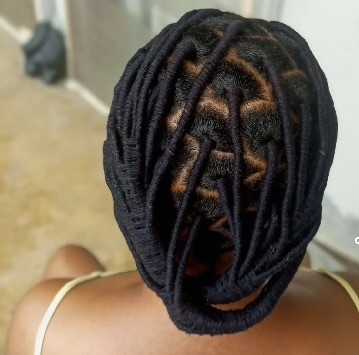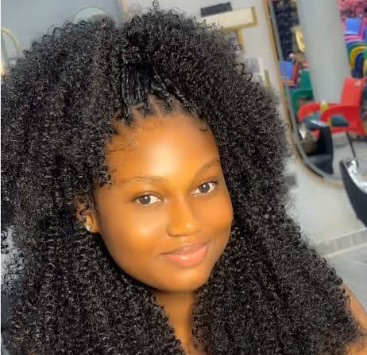Menopause brings many changes, and for many women, one of the most frustrating is hair loss.
As estrogen and progesterone levels drop, hair can become thinner, drier, and more fragile, a challenge that’s especially noticeable for women with textured hair. But the good news is that menopausal hair thinning isn’t irreversible.
With the right treatments and care, it’s possible to restore growth and maintain healthy, resilient strands.
During menopause, the decline in hormones shifts the balance between growth and shedding. Hair follicles shrink, and the anagen (growth) phase shortens, leading to gradual thinning. For textured hair, which already tends to be more delicate and prone to breakage, this change can be even more pronounced. Dermatologists emphasize that the key is to focus on scalp health and nourishment from the inside out.
One of the most effective topical treatments is minoxidil, an FDA-approved solution that helps stimulate hair follicles and prolong the growth phase. Applied directly to the scalp, it has shown consistent results for menopausal women experiencing hair thinning. However, because textured hair can be prone to dryness, pairing minoxidil use with moisturizing scalp oils like jojoba or rosemary oil can help minimize irritation.
Another promising approach is low-level laser therapy (LLLT), a noninvasive treatment that uses light energy to boost blood circulation to the scalp. Over time, it helps strengthen hair follicles and improve density. Similarly, exosome and PRP (platelet-rich plasma) treatments are gaining popularity for their ability to rejuvenate dormant follicles and encourage regrowth using the body’s own healing factors.
Internally, addressing nutrient deficiencies can make a significant difference. Supplements rich in biotin, iron, vitamin D, and omega-3 fatty acids support strong, healthy hair from within. For Black women, who may already experience lower vitamin D levels, consistent supplementation can help balance hormonal changes and improve follicle activity.
Finally, gentle hair care practices, like reducing heat, limiting tight styles, and moisturizing regularly, are essential. Protective styles can still be worn, but with less tension and more attention to scalp access for treatments.
Menopausal hair loss may feel discouraging, but it doesn’t have to be permanent. With a mix of proven science, mindful nutrition, and tender care, textured hair can thrive beautifully at every stage of womanhood.





